Transcription
Thoughts from the Heart
BY: Joseph Smith
2012 October 03
2110 Hrs:
Thanksgiving - A Day That Belongs to Everyone
Part I
It is a Thursday in late November. The airports are packed, the highway is a solid river of buses and cars. Kids, dressed up and scrubbed behind the ears, peer out the windows of back seats. In a thousand small towns the football teams warm up for their biggest game of the season. In kitchens everywhere a certain tasty native bird is being stuffed and basted. It is ---- Thanksgiving, the day when Americans take time out from their lives to feast, to visit their loved ones, to welcome their friends and to give thanks to "God". There is no complicated theology, no special prayer. It is a custom as old as the country, even older, mingling its themes of freedom and faith. It begins in the Old World, near the end of the seventeenth century, with a tiny group of English religious dissenters. Separating --- themselves from the Church of England and its hierarchical structure, they formed themselves into small congregations bound together with covenants. They wanted the freedom to follow the divine law as they saw it, to walk all His ways made known, or to be made known unto them whatever it should cost them. Eventually, under persecution, they fled to Holland, the only country in Europe that practiced religious tolerance. But tolerance alone was not enough. In Amsterdam and Leiden the separatists, as they were known, faced poverty and social isolation. And so once more they set sail, this time for the New World. There, unencumbered by custom and law, they hoped to create a true community of saints. They set out thoughtfully; their future governor, William Bradford, wrote that they went "not out of any newfangledness or other such like giddy humor, by which men are oftentimes transported to their great hurt and danger, but for sundry weighty and solid reasons."
Financed by English investors who wanted the benefit of a trading colony in America, they set sail in September of 1620. Other religious dissenters, and a few adventurers and merchants, joined them in Southampton. Three months later, with their mast cracked by a North Atlantic storm and many ill, they reached the shores of Cape Cod. It was November; the cold New England winter was setting in; and they were nearly out of food. A few lost heart. Looking out at the forest and barren dunes of what was to be her new home, William Bradford's wife said she would rather drown than go ashore. But most of the voyagers had a strong faith in providence, as well as a knack for managing their practical affairs. Before they left their weather-beaten ship, they drew up and signed their names to the first democratic document in the New World, the Mayflower Compact, agreeing to form "civil body politic, for our better ordering and preservation, and for the general good of the colony". Then they went ashore and kissed the ground. Within a few days, they met members of the local Wampanoag tribe. Not only were they helpful, but two of them spoke English. One had spent time around English fishermen, and the other had been taken to London, but somehow found his way back. Now they were the settlers' translators in their dealings with the Wampanoags.
For the most part, these dealings went very well. The colonists traded tools and cloth and beads for fish and skins and venison. The Wampanoags showed them how to hunt the local game, how to cultivate corn and squash, where to dig for clams. And they asked the pilgrims to train their muskets on the crows that raided their crops. A feeling of trust and community grew up between them. Even with the Wampanoags' help, that first winter in Plymouth was harsh; nearly half died, the rest lived on what they could hunt or fish. The following autumn, with a harvest plentiful enough to bolster their spirits, they planned a day of thanks, and they invited their neighbors. Two years later, another ship came bringing more supplies and settlers. The pilgrims were soon followed by other religious dissenters, who worshiped with the same simplicity and rigor. The day of Thanksgiving soon became a tradition in New England. By tradition, Thanksgiving was proclaimed on Thursday, for this was the day when New England ministers gave afternoon sermons. A weekday observance had other advantages. Activities forbidden on Sunday by most devout Puritans such as walking to a neighbor's house were permitted during this week. With the spread of the colonial population south and west into new territories, Thanksgiving became the occasion for homecoming. In the early nineteenth century it was estimated that upwards of ten thousand people left New York each year to return to New England for the holiday. As the years went by, more and more attention was paid to the feast around which so many families reunited. Tables creaked under the weight of the banquet spread atop them, game and cranberries and mashed winter vegetables, spiced crab apples, pickled pears, gooseberry jam, cider and pies and plum pudding. The food was prepared days ahead of time. The children were drafted to seed raisins or pit cranberries, the women baked and cooked. In time, with the clash of cultures and economic interests, harmony between the settlers and Native Americans was more the exception than the rule. But the memory of the first Thanksgiving - when Massasoit and his warriors sat down with the pilgrims at Plymouth - survived as a kind of touchstone in the popular imagination. The tradition grew and deepened. During the War of Independence, General Washington announced periods of prayer and thanksgiving, which he felt would promote the happiness of his men. At each watchshed the young nation gave thanks for independence, for the new constitution, for the Bill of Rights - guaranteeing their liberties, for the end of the fratricidal war of North and South. Throughout the Civil War, Lincoln proclaimed National Days of Praise and Thanks, inviting the nation to assemble.
Other posts by this author
|
2013 sep 3
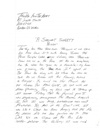
|
2013 jul 1
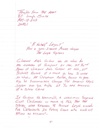
|
2013 may 25
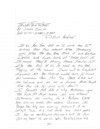
|
2013 may 22
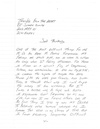
|
2013 mar 20
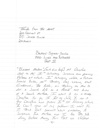
|
2013 mar 20
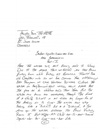
|
More... |

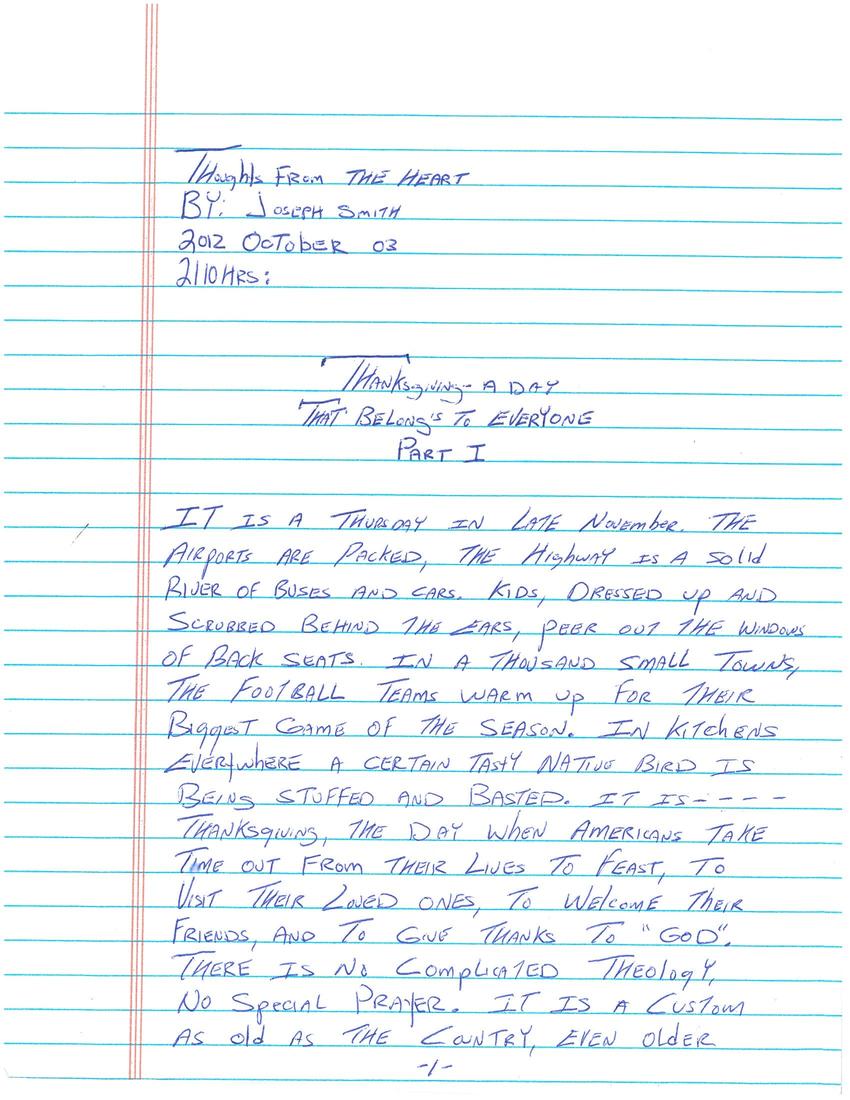
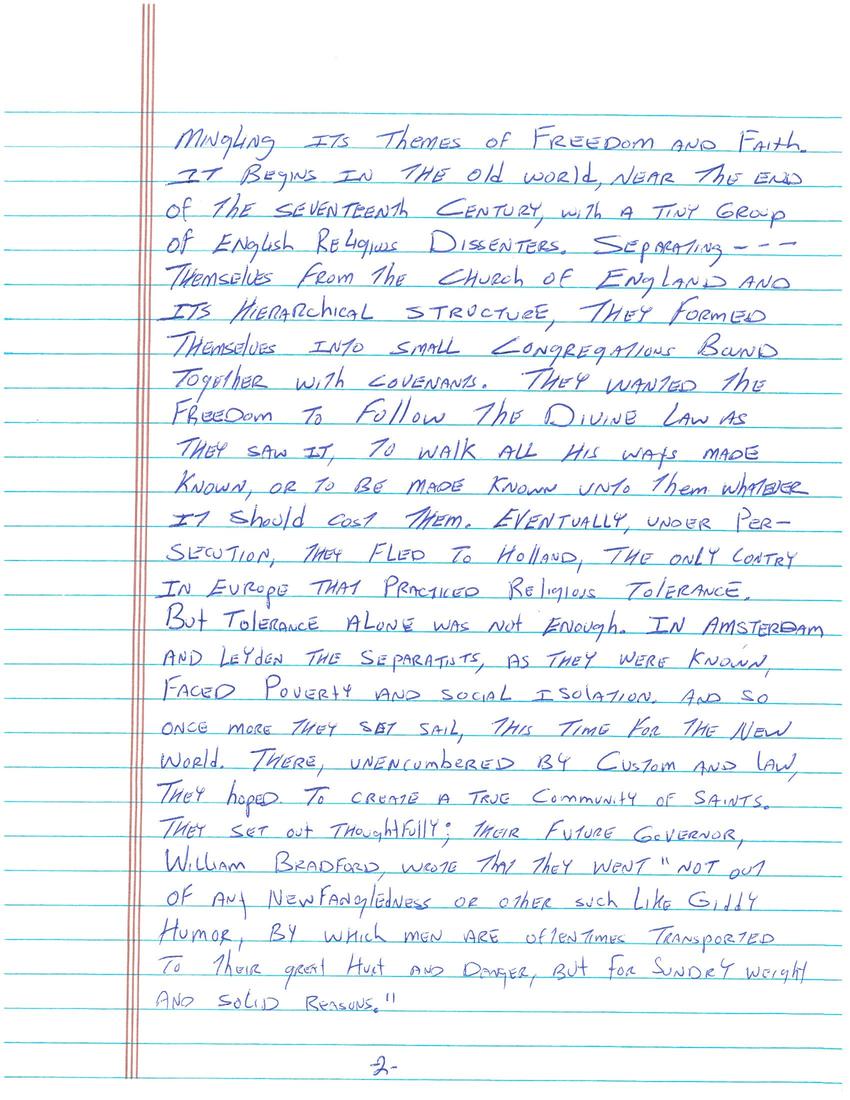
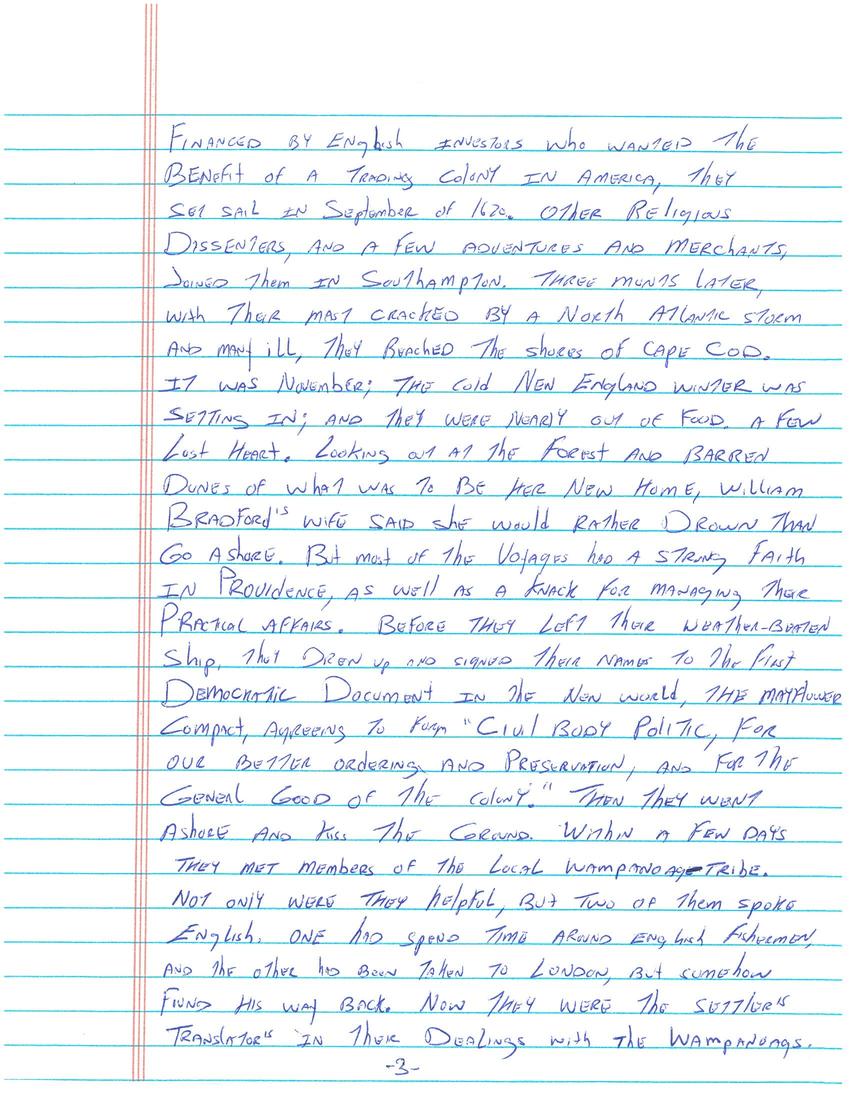
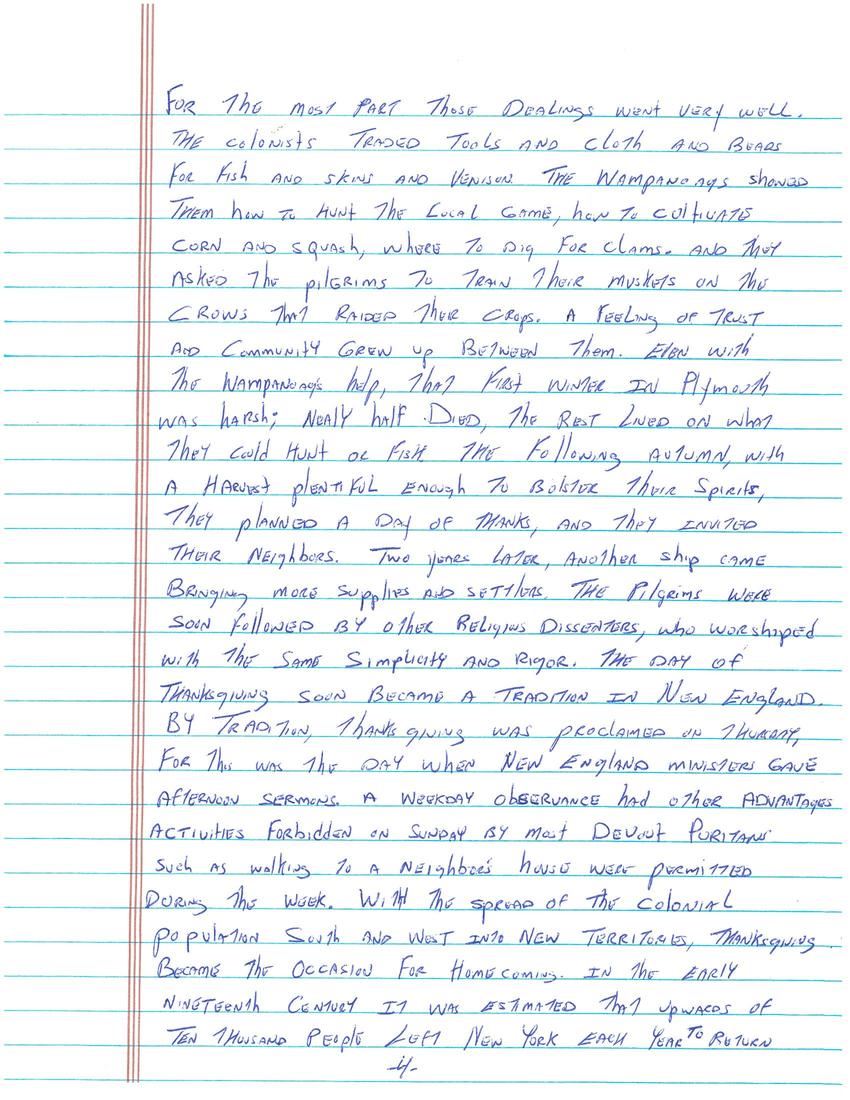
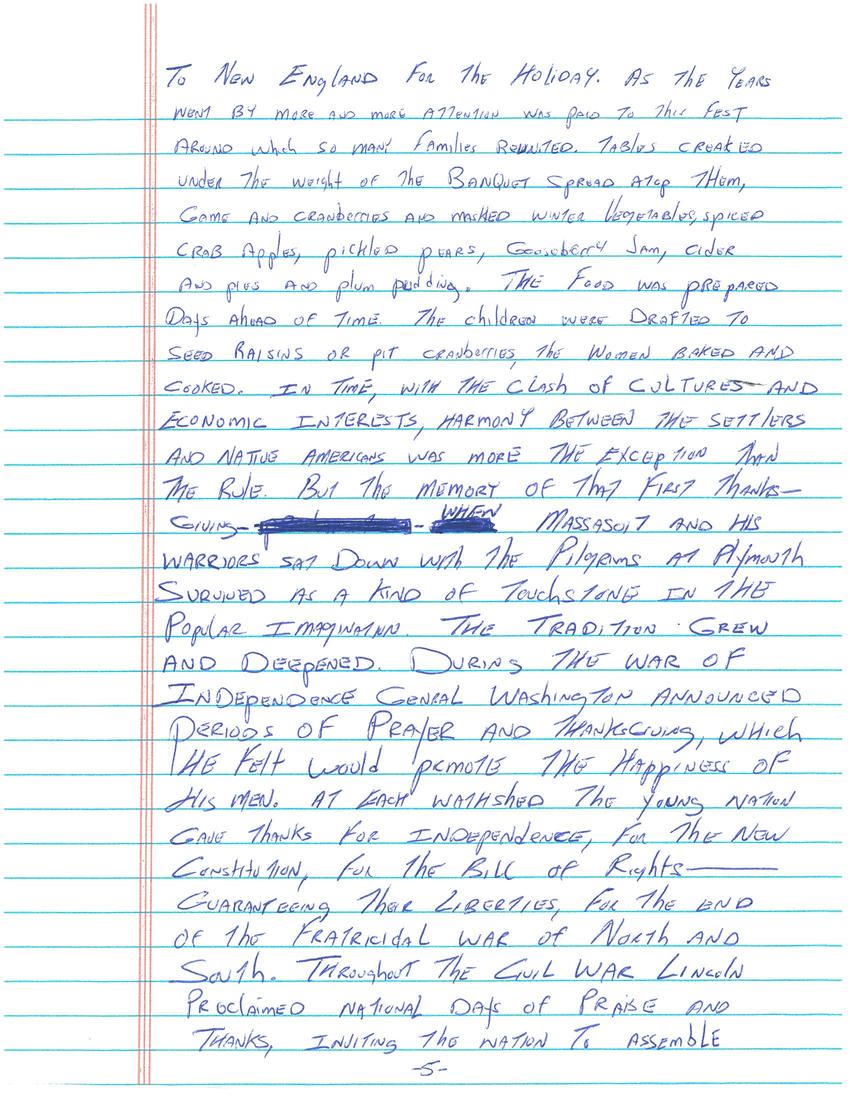

Replies